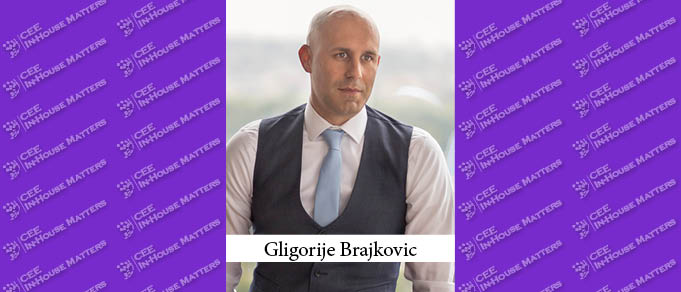The last time I wrote for CEELM, we had been discussing how COVID-19 changed a General Counsel’s scope of activity. How everything shifted in a short time frame and how we were waiting to see the world return to a regular pace – different, but still comfortable enough – without the pandemic threat paralyzing us all.
This did not happen and, instead, we are at the onset of a new era. Geopolitical turbulences are so strong and sudden that life, in every aspect, is starting to look pre-apocalyptic. We understand now just how right all the Miss World candidates were in saying “world peace is important.” Now, one question, ignored and just used in political campaigns, is actually making its way to the top of to-do lists – pollution.
This was not because of its effects on the environment, care for future generations and social impacts, or to be politically correct – because all these were the last considerations. Decrees on fossil fuel spending due to the geopolitical situation directly influenced the promotion of the green agenda. For the first time, we saw some real action that will change the world and our legal work globally. New regulations were enacted, and one new branch of the legal tree is appearing. A new star was born and is rising. As was the case some time ago with compliance, competition, and the GDPR, ESG is now aggressively carving its place on our agendas. As the problem is global, the solution has a cross-border reach too, so we cannot seat idle, wherever we are. With green covered under “E,” we also have “S,” which covers a broad plethora of topics under the general term of “Social Responsibility” that have yet to be defined – and that task alone is not an easy one, as it depends on the particularities of each culture and their different degrees of tolerance on some social phenomena. The “G” part is related to Governance and seeks to strengthen the responsibility of management in the mentioned areas. But let’s now focus only on the “E,” if at all possible. The green agenda has been developing from soft law to hard law. The initial resolutions of international organizations such as the UN were making a slow impact but paved the way for stronger regulations with serious penalties. The EU adopted the Deforestation Regulation, the so-called Battery Regulation, and, most importantly, the Corporate Sustainability Due Diligence Directive. Still, we are a long way from having implementation at a state level, but the legal work may start already. Companies should reconsider their environmental behavior, since ESG ratings in the future will be considered in parallel, and with the same importance, as the famous financial ratings. Attitudes to climate change, carbon footprints, natural resource management such as biodiversity and land use, the sourcing of raw materials – all of this will be assessed by third parties. But the most demanding part will be the sustainability due diligence, which resembles, by name, standard DD reports but now puts companies in uncharted waters. What will this look like and how will our work be impacted? What is the technical knowledge that GCs and their team are currently lacking to do just that?
Regulators are also recognizing the trend, and we can see their actions aimed at investigation due to the suspicion of investment fraud related to “greenwashing.” We can already see companies suspected of having systematically exaggerated their commitment to sustainability and green investments and, in doing so, misleading investors. Moreover, advertising green initiatives alone, without taking into account one’s carbon footprint, is also penalized.
Finally, environment-related litigations are on the rise. Namely, consumers and investors are increasingly filing fraud claims alleging that companies failed to disclose information about climate risks, or have disclosed information in a misleading way, and directly influenced the level of damage. Moreover, the direct (or potential) consequences of a company’s behavior on the environment are scrutinized more and more. It is a trend to seek to assign responsibility to private actors for their contributions to climate change. Consequently, courts will be increasingly called on to address the law and science of climate attribution to companies for the damage done.
We can see that General counsel will have new areas to cover. You can see and feel that a new journey has begun. CGs should plan for it, pack their suitcases, and choose their companions. Again, an educational path must be taken. External help should be called upon and, again, GCs need to recognize who is a reliable partner for this trip. Be courageous, hit the road. Like Van Gogh said: “The fishermen know that the sea is dangerous and the storm terrible, but they have never found these dangers sufficient reason for remaining ashore.”
By Gligorije Brajkovic of the Unicredit Group
This article was originally published in Issue 9.9 of the CEE Legal Matters Magazine. If you would like to receive a hard copy of the magazine, you can subscribe here.


